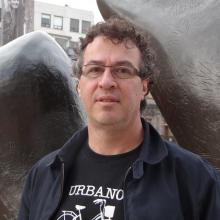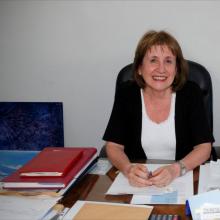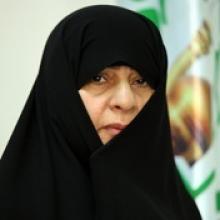Community Leadership Experiences
ROOM: Auditorio principal
2nd Thematic Session on Inclusion
Organized by: Metropolis and Government of the City of Buenos Aires
Citizens were the protagonists of this session under the premise that the organization of cohabitation and the creation of policies are not solely in the hands of the civil servants or experts, but also in those of the inhabitants of cities. The main idea was that the political classes should not be considered to be separate from the community, in isolation from each other. On the contrary, it is necessary to build alliances between public intervention and the community, given that only the latter knows what its needs are, and ought to be at the heart of its own social transformation.
The gathering was moderated by Jorge Melguizo (consultant and speaker on public administration, integrated urban projects, and culture) and Mercedes Aranguren (President of the Convivir Foundation). The experiences shared during the session were as follows:
- 'Abidjan: Modern plant for the transformation of cassava', by Cathérine Zouzoua, councillor for the Abidjan District.
- 'Barcelona: Experience concerning public spaces and gender from the community leadership perspective' by Estel Crusellas, Coordinator of the Women's Information and Resources Centre (CIRD).
- 'Agra: Assisting the poorest communities of the suburbs through the smart use of technologies, sustainable social and economic impact, and the interface between the excluded communities and the administration of the city' by Renu Koshla, Director of the Centre for Urban and Regional Excellence (CURE) India.
- 'Participation of women in the administration of local neighbourhoods' by Ensieh Ghafouri Sharbaf, Policy councillor in Mashhad.
- Following this there were brief presentations under a “TED” format, which made the session dynamic and exciting. The speakers were:
- Nelsa Curbelo, an expert in human rights, non-violence, and conflict resolution, from Guayaquil.
- Alvaro Jourde, leader of 'Ruwasunchis', a cultural and citizen movement based in a peripheral community of Lima known as Manchay.
Lastly, the evidence of the following community leaders and representatives from Buenos Aires was put forward:
- Mario, Camilo, and Roxana, members of the 'La Hermandad' Band from Villa 20 de Lugano (who also gave a musical presentation).
- Sara 'Chachi' Lázzaro, who chairs the Centre 'Luna Bu' for retired people and pensioners in Villa Pueyrredón.
- Serafina Falagán, Director of the 'Los Ángeles' community canteen, chair of Villa 26 barrio de Barracas, and spokesperson for resettled inhabitants.
- Fernando Ríos Avillo, from Villa Soldati, member of the project Orchestras and Choirs for Equity of the Ministry of Education of the Government of the City of Buenos Aires.
- Mario Delgado, who after spending seven years living rough, managed to turn his life around and now helps other people to escape from this situation, working with the Operational Department for Integral Assistance for the Homeless.
In the first round of presentations, examples were given of projects in which networks of women are at the forefront as the main group involved. Many of these cases are highly significant because they are carried out in places where women are not free or independent, or there is gender inequality. However, they have been able to satisfy their needs, participate in NGOs, or be the brains behind the planning and urban management. Experiences were also described with regard to the poorest communities as the protagonists of programmes that seek to promote them as being responsible for the administration of the city. In this first round of presentations, the main conclusion was how important it is to listen to the community when planning and implementing any interventions.
Other presentations during this session provided examples of how the agents of community change can be a successful driving force in generating improvements in citizens’ quality of life through local movements focussed on working towards peace, social rights, and inclusion. These are self-organizing phenomena which emerge in the neighbourhoods and which encourage processes of individual development and community empowerment. The initiatives described have shown that they have an enriching impact on social fabric, on the increase of autonomy in the administration of public and local spaces, and on the promotion of the common good, solidarity, and ethical values.
To conclude, the importance of respecting and strengthening community leadership and networks was highlighted. There was also emphasis on the need for providing these kinds of experiences with more visibility in the various international forums, so that the authorities might listen and learn from these kinds of experiences. Lastly, it was pointed out that the presence of the State with policies for supporting people contributes to the construction of high-quality life projects.












